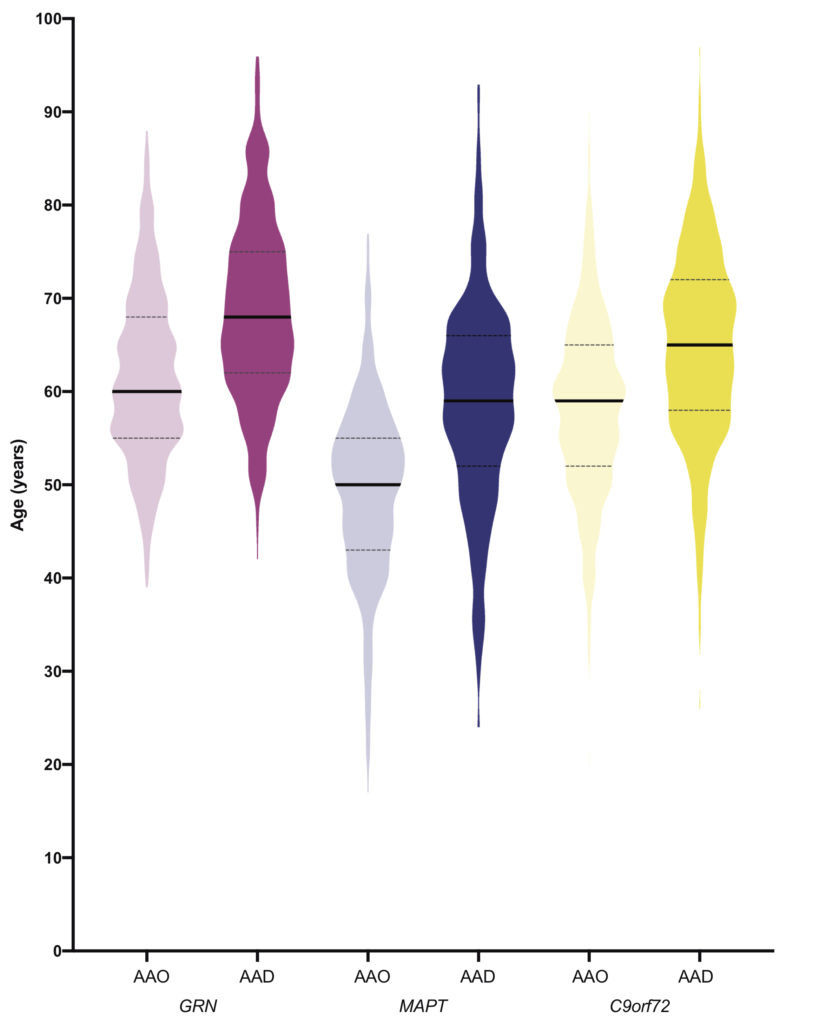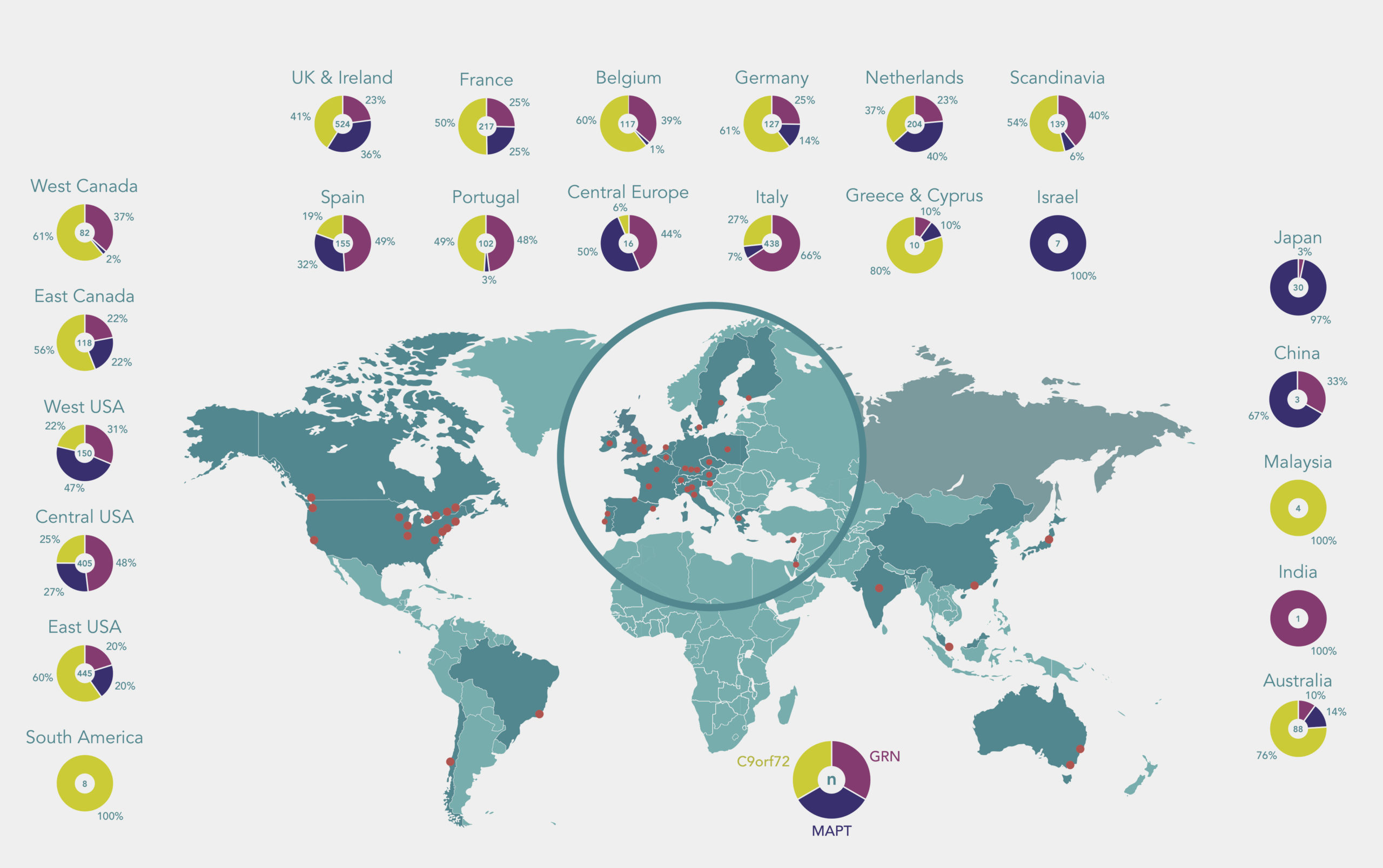Our latest paper has just been published in Lancet Neurology. This work was led by Katrina Moore, a former PhD student within the group, and is the first study published by the FTD Prevention Initiative which brings together GENFI, the European and Canadian genetic FTD study that we run, with other studies from around the world, including ALLFTD in the US and DINAD in Australia. Katrina brought together data from different centres from genetic FTD families including the age at which people within the family developed symptoms, the age at which they died, and their initial diagnosis. This allowed her to investigate how age at onset, age at death and disease duration vary between the different genetic groups and the individual genetic mutations.
Overall 3403 people from 1492 genetic FTD families were included in the study:
- 1433 with C9orf72 expansions (755 families)
- 1179 with GRN mutations (483 families, 130 different mutations)
- 791 with MAPT mutations (254 families, 67 different mutations)
We found that age at onset was youngest in the MAPT group and oldest in the GRN group:
- 49.5 years – MAPT
- 58.2 years – C9orf72
- 61.3 years – GRN

Duration of the disease from first symptom to death was shortest in the C9orf72 group and longest in the MAPT group:
- 6.4 years – C9orf72
- 7.1 years – GRN
- 9.3 years – MAPT
However, for MAPT mutations, age at onset and disease duration were different for the different mutations. Age at onset was also younger and disease duration shorter for those with an atypical parkinsonian syndrome.
For the C9orf72 group, disease duration was shorter in those with ALS (2.9 years) compared with FTD-ALS (5.0 years) and bvFTD (7.8 years).
We were interested in understanding whether we could predict an individual’s age at onset by either the age at onset of their parent, or the average age at onset across all family members. No correlation between two things gives a score of 0 and a complete correlation gives a score of 1, so the higher the number the more likely we are to be able to predict the individual age at onset. The results we found were:
- MAPT – individual vs parental age at onset = 0.45; individual vs average onset in family = 0.63
- C9orf72 – individual vs parental age at onset = 0.32; individual vs average onset in family = 0.36
- GRN – individual vs parental age at onset = 0.22; individual vs average onset in family = 0.18
In other words, only for the MAPT group did we see a relatively high correlation – this means that if someone’s parent had their onset of symptoms at 55, then that person is likely to also have onset around the age of 55 (+/- a number of years).
For MAPT mutations, an individual’s age at onset is largely explained by the specific mutation they carry and even more so by the family they are a member of. However, for both the GRN and C9orf72 mutations these factors do not particularly explain age at onset. This suggests more work needs to be done to find other genetic or environmental factors that modify age at onset in these groups.
This work provides new insights helpful both to FTD families and to how we might design clinical trials – unfortunately, if we are performing trials in the presymptomatic period, we will not be able to predict onset particularly accurately for the GRN and C9orf72 groups, and will need to find better markers that tell us whether someone is in proximity to their symptom onset.

